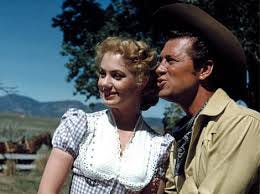Oklahoma
Never have I asked an August sky/Where has last July gone?
It turns out eyelash serum works. Richard has been remarking on my eyelashes when we sit together on the couch, streaming something on his computer. Last night we watched Oklahoma (Kanopy), the 1955 version, and it was great. I mean really great. Not even for a minute will you wonder if your life is drai…
Keep reading with a 7-day free trial
Subscribe to Everything is Personal to keep reading this post and get 7 days of free access to the full post archives.


